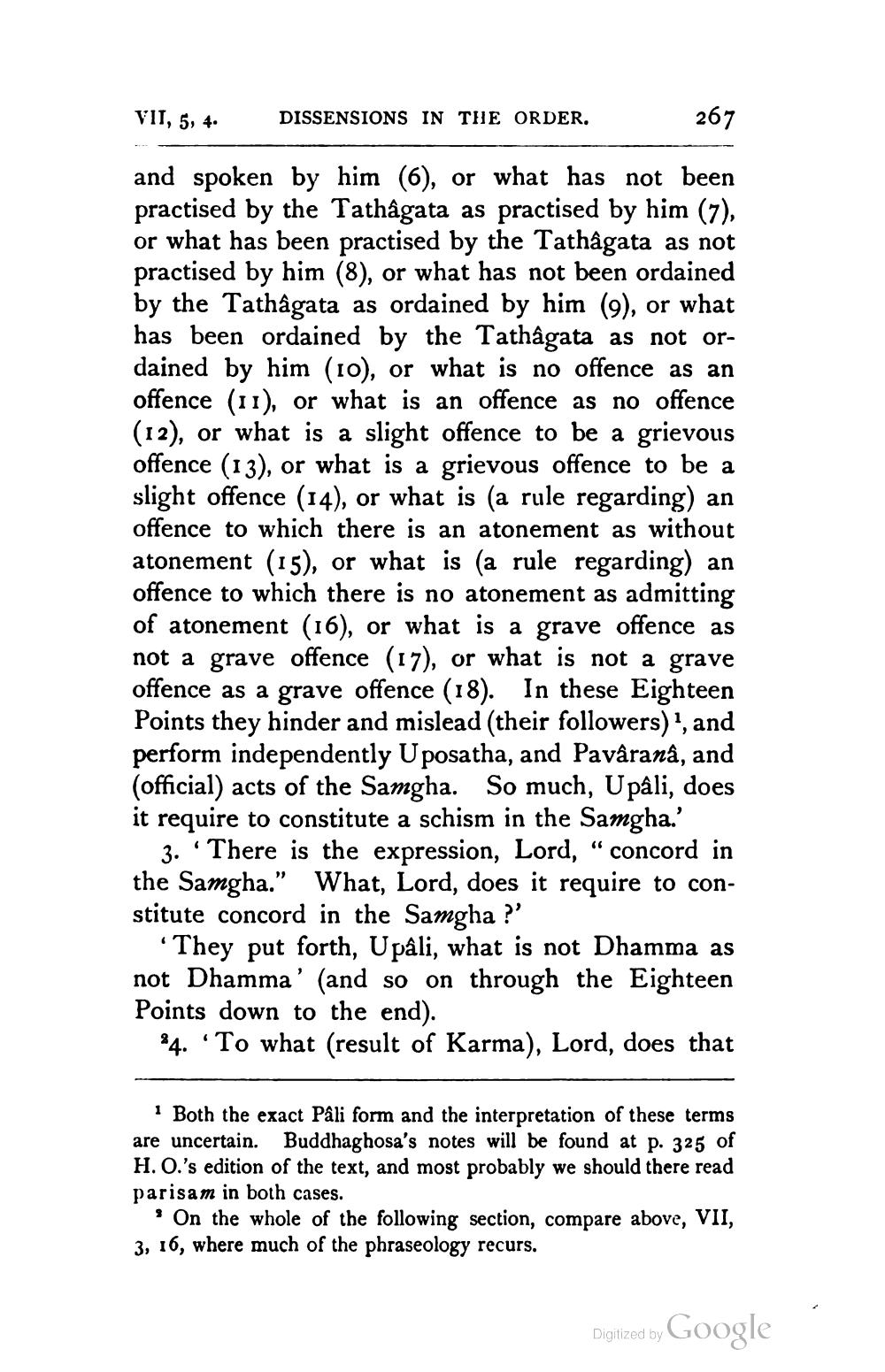________________
VII, 5, 4.
DISSENSIONS IN THE ORDER.
267
and spoken by him (6), or what has not been practised by the Tathâgata as practised by him (7), or what has been practised by the Tathâgata as not practised by him (8), or what has not been ordained by the Tathagata as ordained by him (9), or what has been ordained by the Tathagata as not ordained by him (10), or what is no offence as an offence (11), or what is an offence as no offence (12), or what is a slight offence to be a grievous offence (13), or what is a grievous offence to be a slight offence (14), or what is (a rule regarding) an offence to which there is an atonement as without atonement (15), or what is (a rule regarding) an offence to which there is no atonement as admitting of atonement (16), or what is a grave offence as not a grave offence (17), or what is not a grave offence as a grave offence (18). In these Eighteen Points they hinder and mislead (their followers)', and perform independently Uposatha, and Pavâranâ, and (official) acts of the Samgha. So much, U pâli, does it require to constitute a schism in the Samgha.'
3. 'There is the expression, Lord, “concord in the Samgha." What, Lord, does it require to constitute concord in the Samgha ?'
"They put forth, Upâli, what is not Dhamma as not Dhamma' (and so on through the Eighteen Points down to the end).
34. 'To what (result of Karma), Lord, does that
· Both the exact Páli form and the interpretation of these terms are uncertain. Buddhaghosa's notes will be found at p. 325 of H.O.'s edition of the text, and most probably we should there read parisam in both cases.
On the whole of the following section, compare above, VII, 3, 16, where much of the phraseology recurs.
Digitized by
Digitized by Google




